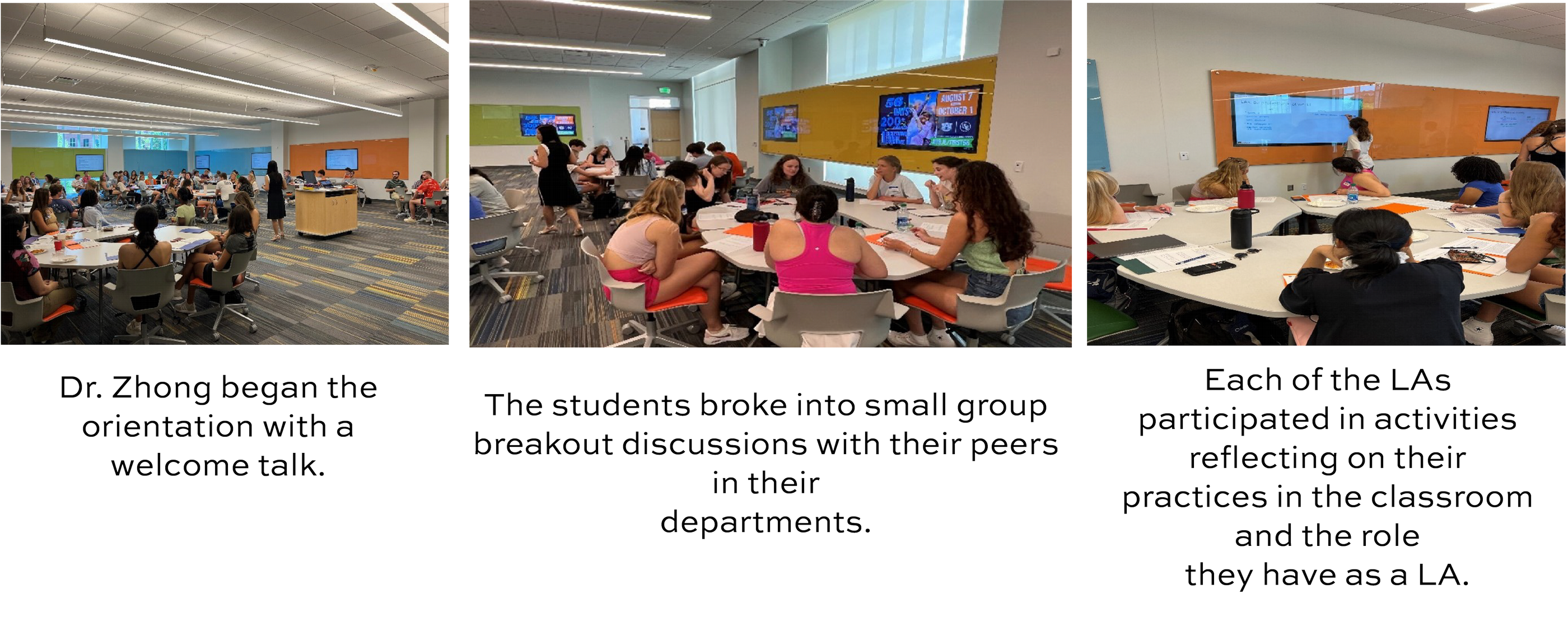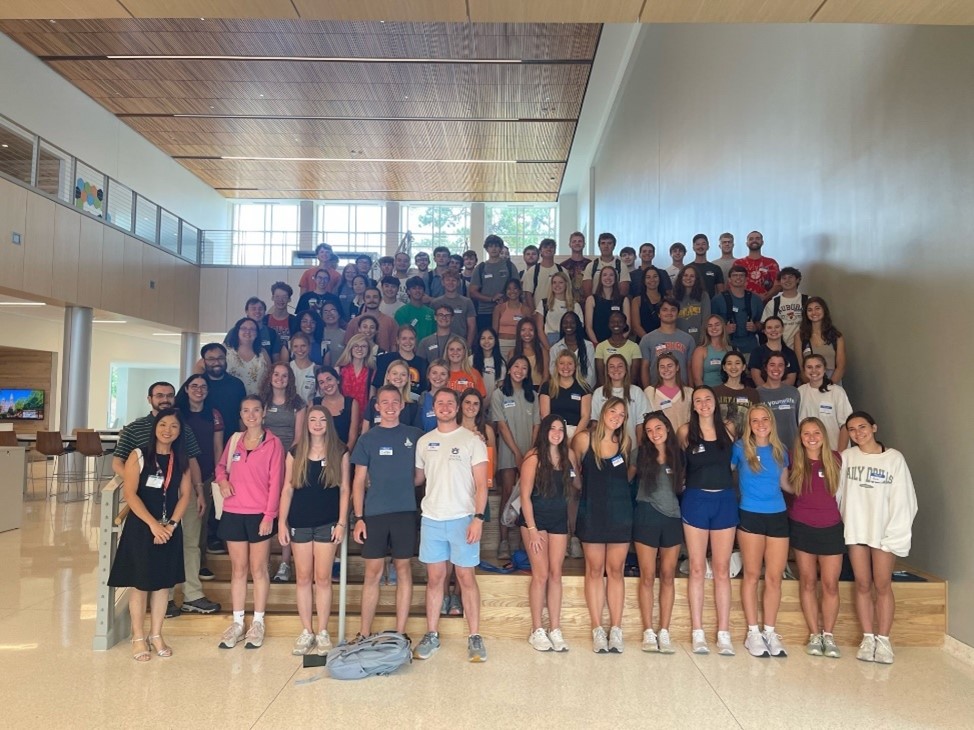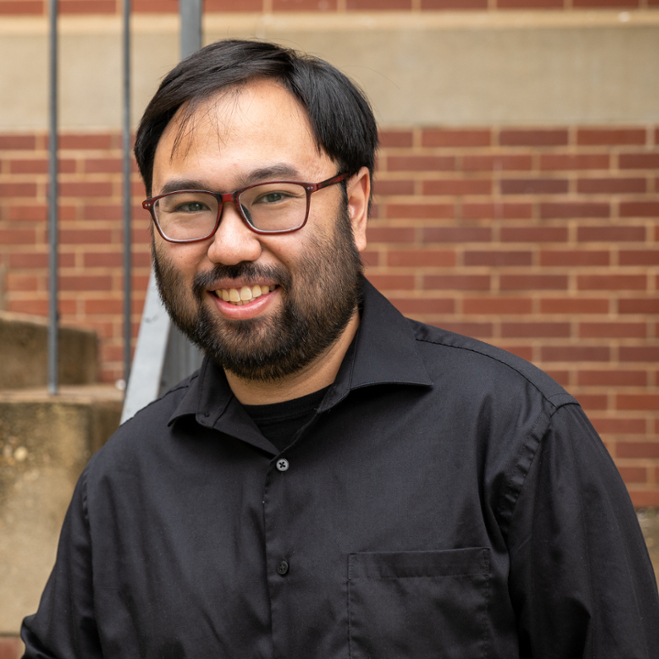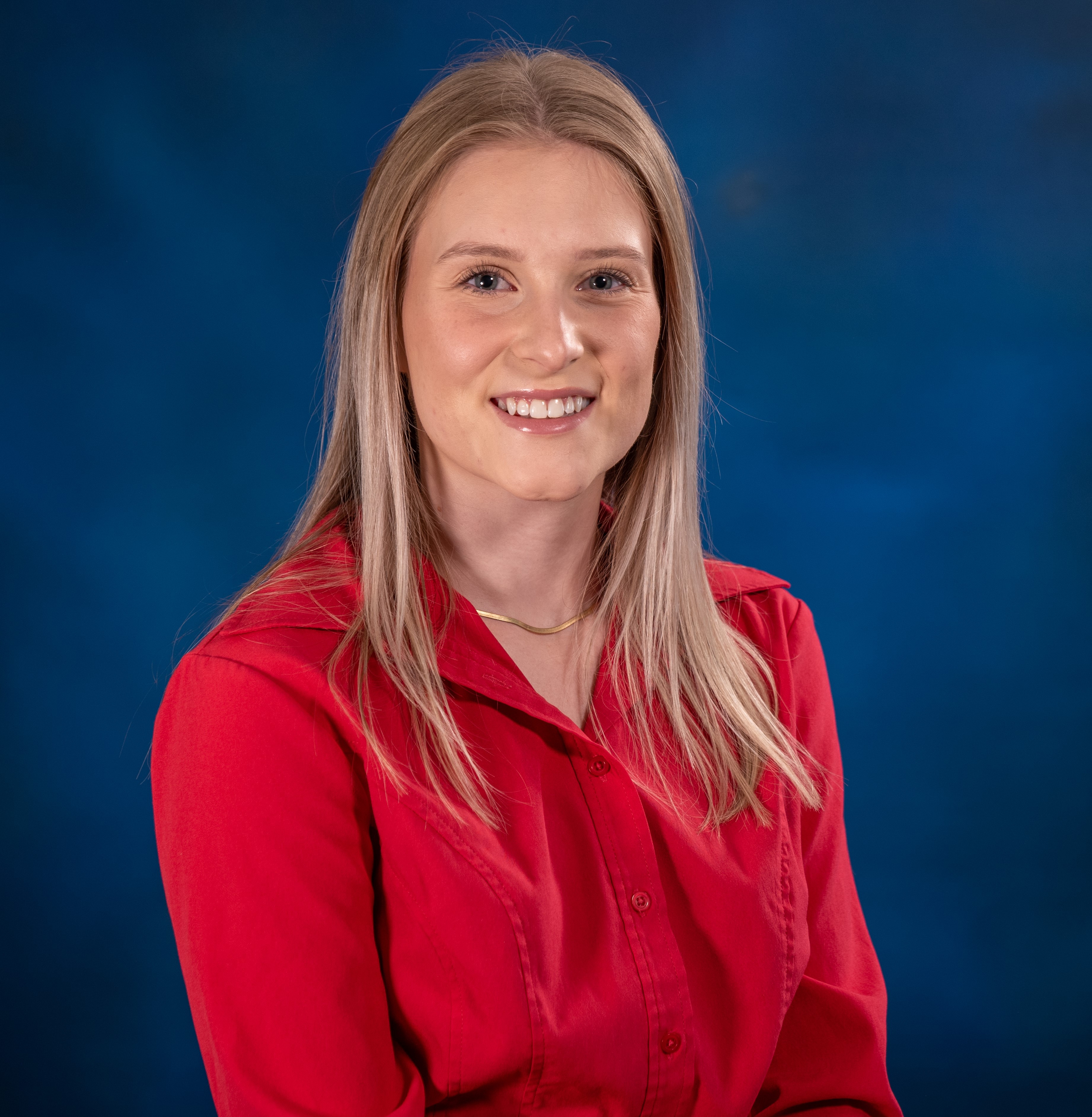Learning Assistant Program: August Newsletter
Welcome Back!
Welcome Auburn faculty and students to the Fall 2023 semester and the August issue of AULAP's monthly newsletter.
Since beginning our newsletter last Spring, we at the Auburn University Learning Assistant Program plan to continually feature the incredible work of our LA Faculty and Student LAs every month. AULAP has an exciting semester coming up; for Fall 2023, AULAP offers support for 30 courses across all 5 COSAM departments. We've hired over 80 Learning Assistants to support over 5,000 students and look forward to promoting each individual's success.
For students interested in becoming Learning Assistants, recruitment season opens in October; additional information will be provided closer to this period both via our newsletters as well as on the AULAP website. In the meantime, we encourage students to fill out this interest form to ensure they stay up to date.
Welcome back and War Eagle!
LA Program Orientation: Kickstarting the New Semester

As the new semester starts back up, that also means that new and current LAs are back on campus and ready to get back into the classrooms working with thousands of students across five different departments in the College of Sciences and Mathematics! On Tuesday August 15th, just one day before classes started at Auburn University, all current and new Learning Assistants met on campus for an LA Orientation.
This event ran for about two hours and the LAs were provided with a free pizza lunch to kick off the event! The coordinators are Heather Haskell (Math and Statistics), Rachel Prado and David Cristostomo (Chemistry), Daniel Merrill and Melissa Halford (Physics), and John Fronimos (Geosciences). By ensuring that the students met with and were introduced to the faculty over the department they were assigned to as a LA, allowed them to know who to contact directly should any questions or concerns arise during their time as a LA. A big focus of the orientation was informing the students of the classes they must enroll in to be able to work as a LA. For new LAs, the required class is a 1-credit hour Pedagogical class, and for returning LAs, they are to enroll in a zero-credit hour reflection course.
Other important topics covered were giving an overview of the AULAP program, information for LAs and their payrolls, and the specific responsibilities of a LA. There were also breakout sessions for the LAs in attendance to meet with their other fellow departmental LAs, as well as the specific people that they will be working with this semester. The orientation wrapped up with final questions, and a big group photo of the LAs and the department coordinators!

LA Faculty Spotlight: David Crisostomo 
To kick off the start of the new academic year, the Auburn University Learning Assistant Program would like to continue our recognition of the incredible students and staff that are vital to our shared success. A member of the Auburn family since 2017, Dr. Dave Crisostomo is the professor we have the honor of featuring in this month's LAP Faculty Spotlight.
Dr. Crisostomo’s interest in lab research began during his schooling as he pursued a B.S. in chemistry from Notre Dame and a Ph.D. from Vanderbilt. At the time, supervising labs and serving as a TA felt like obligations, but, after attending an education seminar, Dr. Crisostomo gained a valuable new perspective that changed his approach to teaching. Focusing on the students and how they learned the material became a rewarding mindset that would lead him to his role today.
Dr. Crisostomo’s classes here at Auburn follow a flipped classroom style; students watch lectures at home to build fundamental knowledge before coming to class to practice application. With foundational chemistry classes reaching 200 students, Dr. Crisostomo uses anywhere from 4 to 8 Learning Assistants in his classes to walk around and assist students who may need extra guidance. He confers with them each week, provides practice sheets, and works with his LAs to create practice problems they think would be the most beneficial to the students.
During our interview, Dr. Crisostomo explains the role his LAs fill as “facilitating [an] active learning classroom.” He goes on to say: “In a large class [without LAs] it would be impossible to teach the way that I teach now.” Dr. Crisostomo explains how he often matches up struggling students with LAs who have similar majors and encourages successful students interested in helping others to apply to LAP.
Dr. Crisostomo also remarks about the unique experience LAP offers. He explained how he has never seen another program like it, one where undergraduate students are so involved. He recalled his time as a graduate student having to lead lab sessions alone. Beyond the benefit they pose to him as a professor, Dr. Crisostomo acknowledges positive student feedback regarding his LAs. Often students will mention LAs by name in course evaluation and elaborate on their ability to cater to their individual needs.
With over 50 LAs hired during his time at Auburn, Dr. Crisostomo continues to be an enthusiastic proponent of LAP. “Having LAs really changed how I teach,” he said, “[the] LA program lets me teach the best way.”
LA of the Month: Emily Moshell 
In addition to our Faculty Spotlight, AULAP is excited to continue our student LA of the Month Spotlight beginning first with Emily Moshell, a chemical engineering major and physics LA. It was a pleasure sitting down with her and getting the chance to hear about her exceptional work.
Emily’s interest in the Learning Assistant program began Fall of her sophomore year after one of her friends, explained the program and its benefits. Beginning in Physics 1500 with Dr. Halford before moving to Dr. Bodewits’ Physics 1607 course, Emily has taken on a particularly intimidating subject among COSAM students.
In our talk, Emily mentioned how she is the only LA in a class of 35 students. She explained how Monday and Wednesday of class are primarily lectures with Friday reserved for group problem-solving. Emily works with these same groups of students weekly in class and labs and has grown to know many of her students personally often sharing stories and relating to students going through what she experienced when taking the course.
Emily pointed out some of the challenges she faces as a physics LA. She explained that early in the semester is particularly difficult for students who did not take physics in high school. She said it is also challenging to pinpoint what the students do and don’t know as some are hesitant to utilize LAs and instead opt for the TA or professor directly.
Despite this, Emily is sure to always send students extra practice problems and simulations as well as additional resources on campus where students can seek help. Additionally, as the semester progresses, Emily notes how rewarding it is to grow closer to students and watch them succeed. Students who were sometimes unlikely to seek help from Emily end the semester befriending her and thanking her for her help. Emily recalls a particular student that brought her flowers as a way of saying thank you.
Moving forward, Emily says that, prior to LAP, she had never considered a career in education, but now has considered teaching high school physics or math. She explained how she wanted to be like her favorite teacher, someone who pushed her to succeed and continues to inspire students to enter STEM fields.
To her peers, Emily is sure to always recommend LAP and encourages those who she thinks would be successful at it to apply. To students who may be hesitant, Emily says: “I was in your spot a few years ago,” but she assures them the reward is worth it.
For additional information specific to departments, please contact the departmental LA coordinators.
Math and Statistics:
Heather Haskell: hgh0035@auburn.edu
Chemistry:
Rachel Prado: jrp0089@auburn.edu
Dave Crisostomo: dac0056@auburn.edu
Physics:
Daniel Merrill: dam0040@auburn.edu
Melissa Halford: mrh0091@auburn.edu
Geosciences:
John Fronimos: jaf0086@auburn.edu

